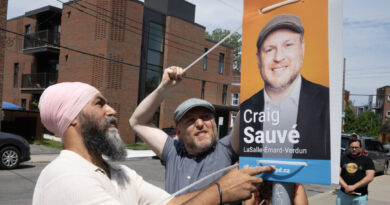Eliminate Debt Quickly: How to Get Rid of It as Soon as Possible
Commentary
You have a dream. You are on a beach of golden sand. You have a large bucket, large enough to carry a million dollars’ worth of that golden sand back home with you. You put a scoop in the bucket. Then another. With each scoop, you feel richer. But then you notice something. The bucket isn’t getting fuller. There is a hole in the bottom, out of which sand is escaping.
You work faster, hoping to fill the bucket by adding more sand quickly. Yet, as fast as you fill it, the sand escapes. Still you move faster, and still the bucket will not fill. In fact, the level of sand in the bucket is getting lower!
This is—for many people—the experience of trying to get richer through debt. Debt allows you to have things that you want but can’t afford. There is a cost to it, but you think you can manage that. But that easy money becomes a habit—a bad habit that, like most bad habits, is hard to break. And even if by some supernatural effort of self-control you desist from acquiring more debt, the cost of the old debt is so large (and growing larger) that no matter how hard you work, the wealth you hoped to acquire disappears.
At some rudimentary level, we all understand that debt is dangerous. But in our daily lives, many of us view it as a necessity. We buy homes with it. And cars. And some of it use debt to buy things that money can’t buy—like prestige, or status, or self-worth.
Although it sometimes seems otherwise, debt is almost never necessary. Sometimes, if you are in the right position and you know what you are doing, debt can be useful. But don’t deceive yourself: debt is always dangerous.
My First Mistake With Debt
I had my first serious run-in with debt when I was 30 years old. My wife K and I were renting a condominium in Washington, D.C. Our landlady came to us with an exciting opportunity: We could buy the condo for US$60,000 with no money down. For just $100 a month more than what we were already paying for rent, we would be paying a mortgage. It sounded like a great deal, so we took it.
What we bought was a negatively amortizing mortgage with a three-year term and an 11 percent interest rate. What that meant was, every three years we were paying $19,800 in debt service and another $3,000 in closing costs.
We didn’t realize what was going on because our monthly payments were only $550. I was too foolish then to ever ask myself, “What is the cost of this debt?”
I tried to find another bank to take me out of this scam but none would. The mortgage we had signed was not backed by the government (Freddie Mac/Fannie Mae), which meant that no other bank would touch it.
It was like the dream with the leaking sand. Our golden condominium was nothing but fool’s gold.
And we were the fools. I wasn’t able to get us out of that deal until years later when I was wealthy enough to pay off the mortgage. Even after calculating the rental value of living in that condo, the deal cost me more than $30,000, and I had nothing to show for it.
I learned that when banks make it easy to borrow money, it’s not because you are a nice, deserving person. I learned that if you can get a loan despite poor credit (as ours was at the time), there is usually a catch involved. It also taught me to always ask the two critical questions about debt: “How much will it cost?” and “Can I afford it?”
It was an expensive lesson. But the lesson seemed cheap 30 years later when, in 2005, the real estate market bubbled out of the pot. I sold my speculative properties and got out of the market. I made and saved millions, while my friends who ignored my warnings got crushed.
As I said, debt is almost never necessary. And it is always dangerous.
When I say debt is almost always unnecessary, I mean the only exception I can think of is if one day you have to borrow money to pay for ransom on a loved one. But otherwise, truly, I can’t think of a situation where debt is necessary. In every case that comes to mind—from the house to the car to whatever else you may feel you need to have, there is always a way to get the essence of what you want (i.e., what you need) without going into debt.
2 Examples That Illustrate The Danger of Debt
Let’s say that, like most Americans (or Canadians), you are in the habit of buying things with credit cards. After a while, you notice that you have accumulated $30,000 in total debt. You decide to cut up your cards and repay your debt. You can devote $400 a month to paying it back. How long will it take, and how much will it cost you?
The answer may surprise you. It will take you 10 years to pay off the credit card debt. And your total payments will be $47,428. Of that, $13,278 will have been in interest payments.
Or let’s take a $500,000 home on which you take a $400,000 loan (20 percent down) with a 6.5 percent interest rate for 30 years. The mortgage payments are $2,528 a month, which you can afford. But how much will that house really cost you, including interest payments? You will end up paying $910,178 for that house. You pay more interests than principal. (For Canadians, monthly payments would be $2,700 on a standard 25-year mortgage. You’ll end up paying $810,249 for the house, more than double what it cost.)
The commercial community (bankers and manufacturers) doesn’t want you to be afraid of debt. And neither does the government. These institutions want you to like debt. They want you to use it. They want you to go into debt because it is good for them.
When you take out a mortgage to buy a home, or sign a lease on a car, or use credit cards to pay for your lifestyle expenses, the commercial community profits. The manufacturers make money on products you may or may not need. And the banks make money on your debt.
Debt is like a cancer. It lurks within. It guts your wealth while you are paying attention to other, seemingly more important things. Then one day, it breaks through and gives you a fever. You call in the doctors and they cut you open, only to have them find the mess that is your financial body. The doctors then sew you up and walk away.
3 Things You Should Do To Reduce Debt
With only two exceptions, which I’ll mention in a moment, you should attempt to live your life without taking on debt. If you put your mind to it, you can almost always find ways to acquire the things you need without going into debt.
There are some cases where using debt strategically makes sense, but for now, let’s look at what you should not do.
Unless can easily afford it, don’t lease the luxury car you want. Buy the economy car you can afford. The ego-thrill you get from driving that BMW or Mercedes will not last. But the payments will.
This is true of every non-appreciating asset—any thing you buy whose value goes down over time.
Don’t buy anything with a credit card. Keep only one credit card for renting cars. Use a debit card to buy clothes and groceries. If you don’t have enough money in your bank account to use your debit card on a purchase, don’t buy it. If you don’t have enough money in the bank to buy something, it means you can’t afford it.
One of the two exceptions to my rule is a mortgage for a house—but only if you buy a house that is not overpriced (and therefore likely to appreciate 4 percent or more a year) and only if you can get a mortgage rate that is low. This is not always possible to do. But when it’s not possible, it means that the housing market where you are buying is overheated and the bank rates are unnaturally inflated, and the end result is that buying a house in that situation will make you poorer as the years go by. Believe it or not, there are times when it is less expensive to rent a house than to buy one.
If you want a quick formula to know when to buy and when to rent, use this: Never pay more for a house than 100 times the amount you could rent it for on a monthly basis. Example: The house costs $400,000. You check with a rental broker who says he can find you a tenant who will be happy to pay $4,500 a month for it. $4,500 x 100 = $450,000. You are good. Buy it. But if he can get you only $3,000 a month, don’t buy it. Look around for a rental.
The historic appreciation of property is about 4 percent. If you buy a house with 20 percent down, you can end up with a net return of 8 percent to 12 percent. (Not 16 percent, because of the costs of management.) The difference between 4 percent and 8 percent is huge over a span of time. And that is why I have used debt (mortgages) to finance my rental real estate portfolio. But again, this will only work if you pay the right price for the property (see the 100 x monthly rent rule above) and if you can get an interest rate that doesn’t eat up the profits.
Other than those two exceptions, you will find that building wealth—regardless of how much you begin with or how much income you make—is easier and more certain if you live your life without debt.
Eventually, if you are like me, you will enjoy the feeling of being debt-free so much that you may do away with the first exception, and get rid of the mortgage you have on your house.
Getting rid of that terrible, wealth-destroying loan I took on the condominium I mentioned earlier felt like being released from jail. Later on, when I was making more money than I needed for the basics, I been paying down my mortgage faster than I needed to, simply because I wanted to see how it felt to be entirely debt free. It felt pretty good.
Thirty years later, the only debt I carry (and I carry it on a corporate level) is the mortgages I buy to finance my rental real estate portfolio. And the only credit card I use is my American Express card, because I have to pay it off at the end of every month.
With just two exceptions, debt is unnecessary. And expensive. And dangerous.
So get rid of it as fast as you can.




